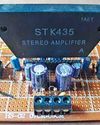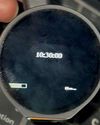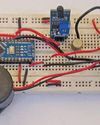
The World Trade Organization’s (WTO) Information Technology Agreement ushered in a new era for Indian consumers in 1997, granting access to global consumer electronics brands and cutting-edge technology at competitive prices. From the iconic Sony Walkman, which revolutionised music on-the-go, to the ubiquitous smartphone of today, these devices became integral to our lives.
However, the influx of foreign consumer electronics brands did not bode well for prominent domestic brands such as Onida, Videocon, BPL, Zenith, etc, who struggled to achieve comparable scale and value addition.
Interestingly, the entire electronics market was not rattled by this wave. Certain sectors, such as industrial electronics (energy meters and inverters) and 2-wheeler automotive electronics, remained relatively less impacted by the influx of global brands. This was because these two realms of electronics already had a local ecosystem which designed, manufactured, and produced components domestically. These indigenous manufacturers found a robust market by supplying their products to renowned energy meters and utility companies and automakers such as Bajaj, TVS, Hero, etc, enabling them to maintain their foothold in the Indian market.
Fast forward to today, India’s electronics manufacturing industry is ambitiously aiming for a $300 billion target output, with a hopeful projection of $120 billion in exports by the financial year 2026-27. This growth trajectory aligns with the country’s broader vision of achieving a $1 trillion digital economy by 2025. While these goals are inspiring, it is important to acknowledge a crucial aspect: India continues to heavily rely on electronics imports to meet its domestic demand.
This story is from the September 2023 edition of Electronics For You.
Start your 7-day Magzter GOLD free trial to access thousands of curated premium stories, and 9,000+ magazines and newspapers.
Already a subscriber ? Sign In
This story is from the September 2023 edition of Electronics For You.
Start your 7-day Magzter GOLD free trial to access thousands of curated premium stories, and 9,000+ magazines and newspapers.
Already a subscriber? Sign In

STK435 IC-Based STEREO AMPLIFIER
This stereo AF amplifier uses the STK435 IC, a highly popular choice due to its simplicity.

A SEWER DRAIN SHIELD For Smart Cities
Drainage systems are vital for storm water management but often transport pollutants, especially plastics, to rivers and oceans, harming ecosystems.

ESP32 SPEECH FUNCTION: Text To Speech
Speech capability in technology primarily has two dimensions: text to speech (TTS) and speech to text (STT). This device focuses on TTS.

World's Smallest Programable INDUSPHONE DESIGN
This is the second part of designing the world’s smallest phone, where the UI is integrated with the basic functions of the phone.

FLAME-SENSING FIRE ALARM Using An Arduino Nano
Fire safety alarms are crucial in both residential and industrial environments.

loT-Based Distribution Transformer CONDITION MONITORING SYSTEM
The proposed IoT-based distribution transformer condition monitoring system enables real-time monitoring of distribution transformers, identifying such deviations as overload conditions and overheating.

Wi-Fi 6 AND Wi-Fi 7 Powering The Next Wave of Smart Connectivity
Wi-Fi 6 leads with faster data rates and reduced latency while upcoming Wi-Fi 7's backward compatibility will facilitate gradual upgrades from Wi-Fi 6, easing transitions. However, advanced features like multi-link operation (MLO) and ultra-low latency may command a premium, making Wi-Fi 7 suited for high-end applications.

CHARGE FORWARD: High-Voltage Batteries And MSMEs Can Fuel INDIA'S EV REVOLUTION
A nuanced explanation of low- and high-voltage EV batteries by Dr Gokhale, Vice President for Battery Technology at JSW Energy, illuminates their advancements and influence. The essential role of MSMEs and academia in developing a strong EV ecosystem emerges, marking their significance for India's push towards self-reliance in this innovative field.

"MILES TO GO Before I Sleep"
A teacher illuminates the path to success through the light of knowledge, yet some teachers extend that light to society through their contributions and research. Known as the architect of the modern M3 electronic voting machine (EVM) and the voter verifiable paper audit trail (VVPAT) that transformed India's democratic process, Prof. (Dr) Rajat Moona's journey began in the modest town of Bareilly. Here is his story, as recounted to and written by EFY's Yashasvini Razdan.

STARTUPS & INNOVATORS
1 One Charger To Charge All Your Devices | 2 Harnessing AI Technology For Efficient Pest Management | 3 Wireless Light-Based Communication With Velmenni's Technology